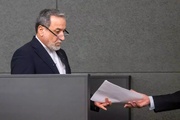It seems that while all media outlets and public opinion are focused on recent protests in Iraq, Israeli officials are trying to contact Arab states of the Persian Gulf that are too reactionary. The Tel Aviv regime also is seeking to reinforce its hidden relations with the Arabs in the wake of regional developments.
Over the last few days, Iraq witnessed disturbances that initially started with civil and anti-corruption protests, but soon after turned into anti-Iran slogans. The protests are being led by social media and foreign elements.
By a review of the world news, we will notice that the protests have become their headline. Contradictory analyses and news regarding these events are spreading across Iraq.
In the meanwhile, on the anniversary of the October war (the 1973 Arab-Israeli war) Israeli Foreign Minister Israel Katz claimed that he has presented a plan to Persian Gulf Arab states to reach an agreement with Tel Aviv and put an end to existing tensions.
Katz, as Netanyahu’s right-hand man, presented the plan during a meeting with some these countries’ foreign ministers on the sidelines of the recent annual UN conference. The plan also has been presented to Jason Greenblatt, Trump’s special envoy for the Middle East.
According to the reports, the plan has four articles: the first one is about developing friendship and cooperation between Israel and Persian Gulf Arab states based on the UN Convention and the principles of international law.
The second article states that “necessary and effective measures” will be taken to ensure that none of the parties engage in activities such as war, hostility, sabotage, and incitement against one another.
According to the third article, neither party shall involve in coalition, organization or alliance with a third country with military or security nature. Neither party should cooperate with or promote these coalitions and organizations.
As the fourth article states all disagreements between parties regarding the agreement shall be resolved by consultation.
The Israeli regime is pursuing several goals by presenting the plan. First, to stop Arabs from joining Iran’s peace initiative to secure the Persian Gulf with the participation of the regional countries, since it is considered as a danger for Israel.
Second, to not allow Arab countries to form a coalition against itself and hold these countries responsible for the actions of the resistance groups.
The third goal is speeding up the process of normalization of political and economic relations and formalizes them.
Fourth, maybe the conditions would be better provided for the implementation of the American Deal of the Century project to completely eliminate Palestine.
Fifth, the Zionist regime will no longer be recognized as the number one enemy of the Arabs and Islam. This time, Iran will be regarded as an imaginary enemy for the region and the Arabs.
It seems that the regime is trying to form a coalition by taking advantage of political and natural disagreements between Iran and some Arab countries in the Persian Gulf. Israel knows that some reactionary states in the Persian Gulf are at odds with Iran, and is trying to secure it by highlighting these disagreements.
Netanyahu claimed that the plan is a “historic measure” that would end the conflicts between the Zionist regime and Arabs. It should be noted that the main reason for the conflict between Israel and Arabs is not the question of Iran, rather it is the question of the Israeli occupation of Palestine.
However, we should wait and see which countries will agree with the Zionist regime’s plan that has targeted security and peaceful co-existence in the region. The public opinion in Arab countries will not easily get along with the formal agreement between their governments and the Zionist regime. It is likely that just like what happened in the Deal of the Century project, the plan will not reach its desired goals.
Those Arab leaders, who have assisted the Zionist regime to promote Anti-Iranian sentiment without paying attention to the Palestine issue, have not been popular in history.
MNA/TT



























Your Comment